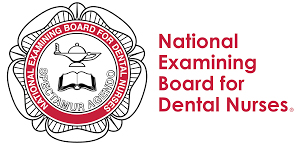Dental Safeguarding of Children and Vulnerable Adults
- SALE Savings End Midnight Tuesday 12th December
- SALE Savings End Midnight Tuesday 12th December
Dental Safeguarding of Children and Vulnerable Adults
This Course at a Glance
- Gain verifiable CPD
- Zoom and Tutor Led Training
- Suitable for all dental professionals
- Learn about the types and indicators of abuse
- Understand how to whistleblow and report abuse
- Get skills that help keep your patients safe from harm
About your CPD Course
Getting Started
Next Course Date:
Modules
- The types of harm and abuse and how to recognise them
- How to appropriately whistleblow and report safeguarding issues
- The legislation, guidance and preventative measures relevant to safeguarding
Entry Requirements
You must be a qualified dental professional who is registered on the General Dental Council Register to enrol on our Continuing Professional Development (CPD) course. As such, you will need your GDC number to get started.
All course fees, inclusive of all payment plans including our Premium Credit Limited option, must be settled before certification can be ordered.
*You will have access to the course for 24 months.
On successful completion of this course, you will receive a learndirect Certificate of Completion for this Continuing Professional Development (CPD) course.
Your course certificate will also state the number of CPD points/hours the course is eligible for.
Frequently Asked Questions
- SALE Savings End Midnight Tuesday 12th December
- SALE Savings End Midnight Tuesday 12th December
Dental Safeguarding of Children and Vulnerable Adults
This Course at a Glance
- Gain verifiable CPD
- Zoom and Tutor Led Training
- Suitable for all dental professionals
- Learn about the types and indicators of abuse
- Understand how to whistleblow and report abuse
- Get skills that help keep your patients safe from harm
About your CPD Course
Getting Started
Next Course Date:
Modules
- The types of harm and abuse and how to recognise them
- How to appropriately whistleblow and report safeguarding issues
- The legislation, guidance and preventative measures relevant to safeguarding
Entry Requirements
You must be a qualified dental professional who is registered on the General Dental Council Register to enrol on our Continuing Professional Development (CPD) course. As such, you will need your GDC number to get started.
All course fees, inclusive of all payment plans including our Premium Credit Limited option, must be settled before certification can be ordered.
*You will have access to the course for 24 months.
Qualifications
On successful completion of this course, you will receive a learndirect Certificate of Completion for this Continuing Professional Development (CPD) course.
Your course certificate will also state the number of CPD points/hours the course is eligible for.
Frequently Asked Questions
learning
learning hours
























